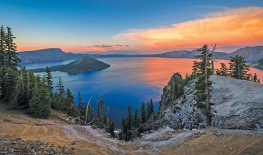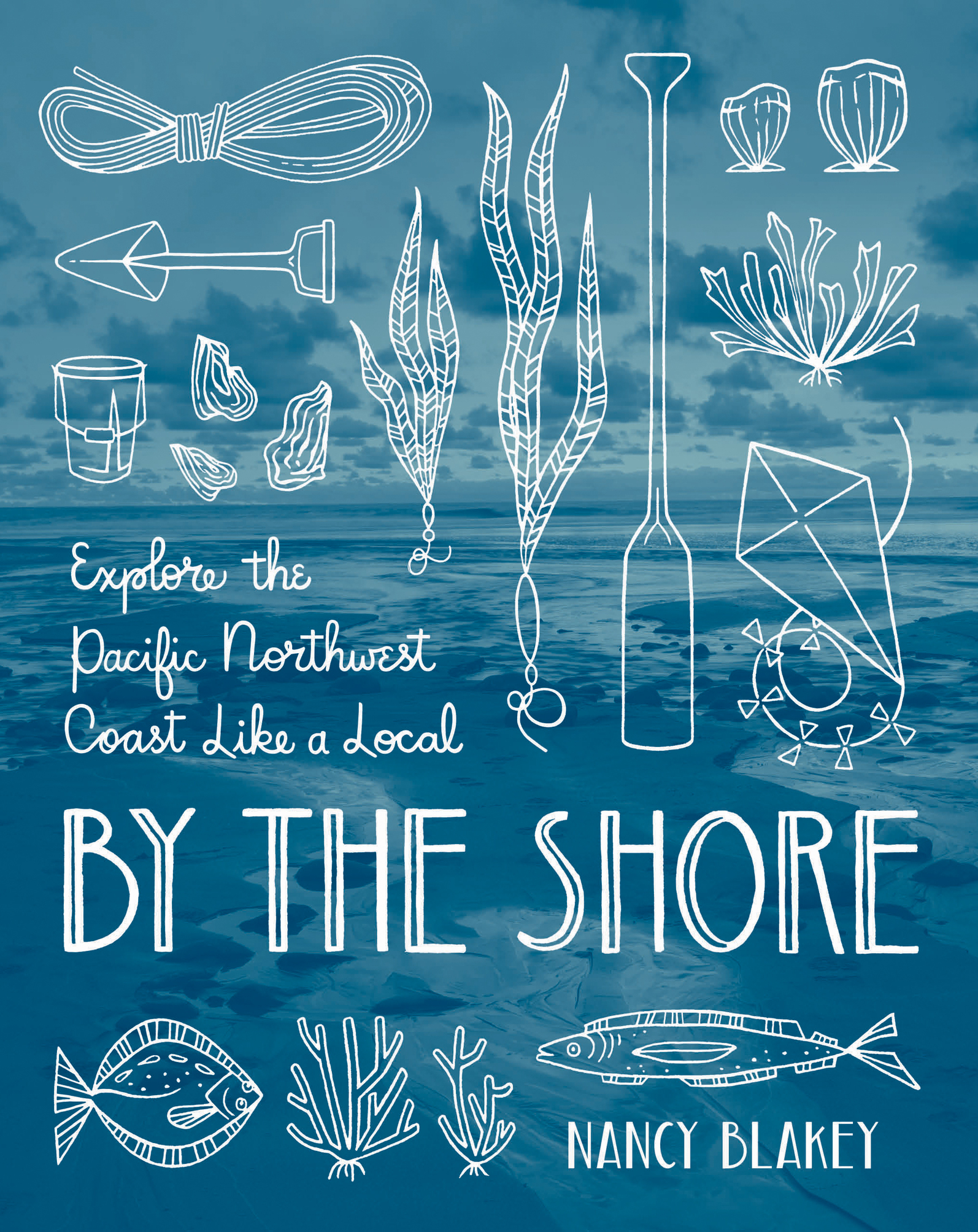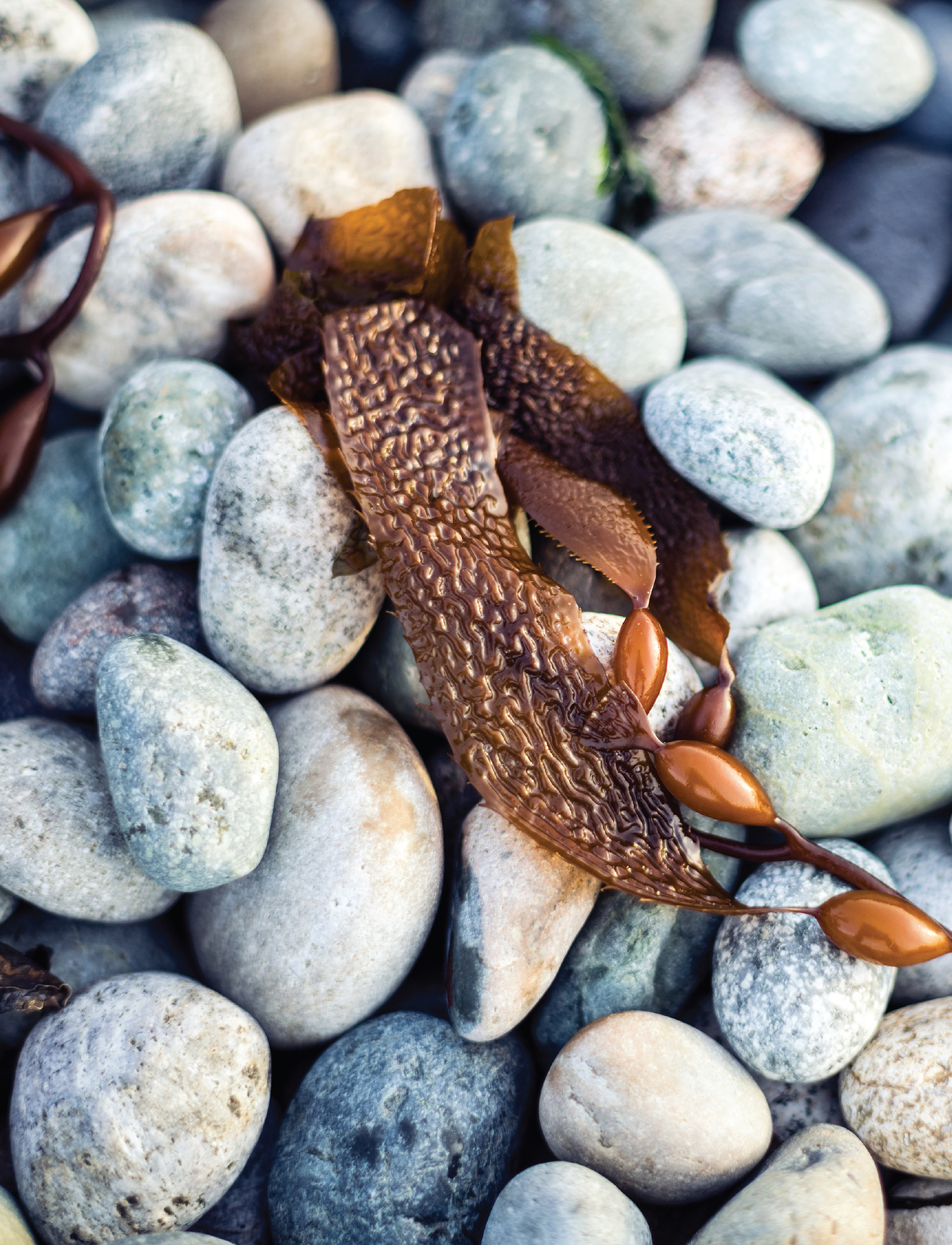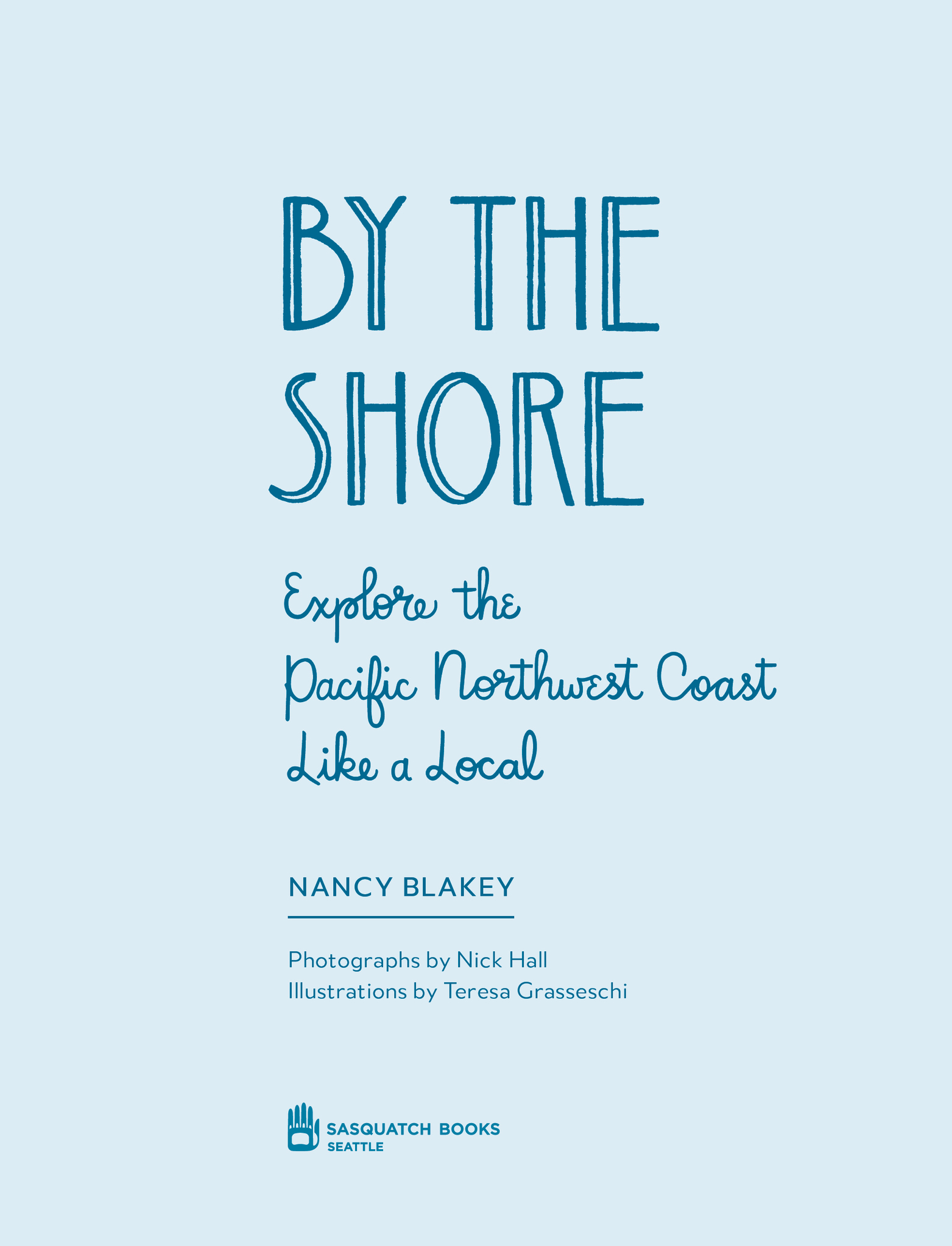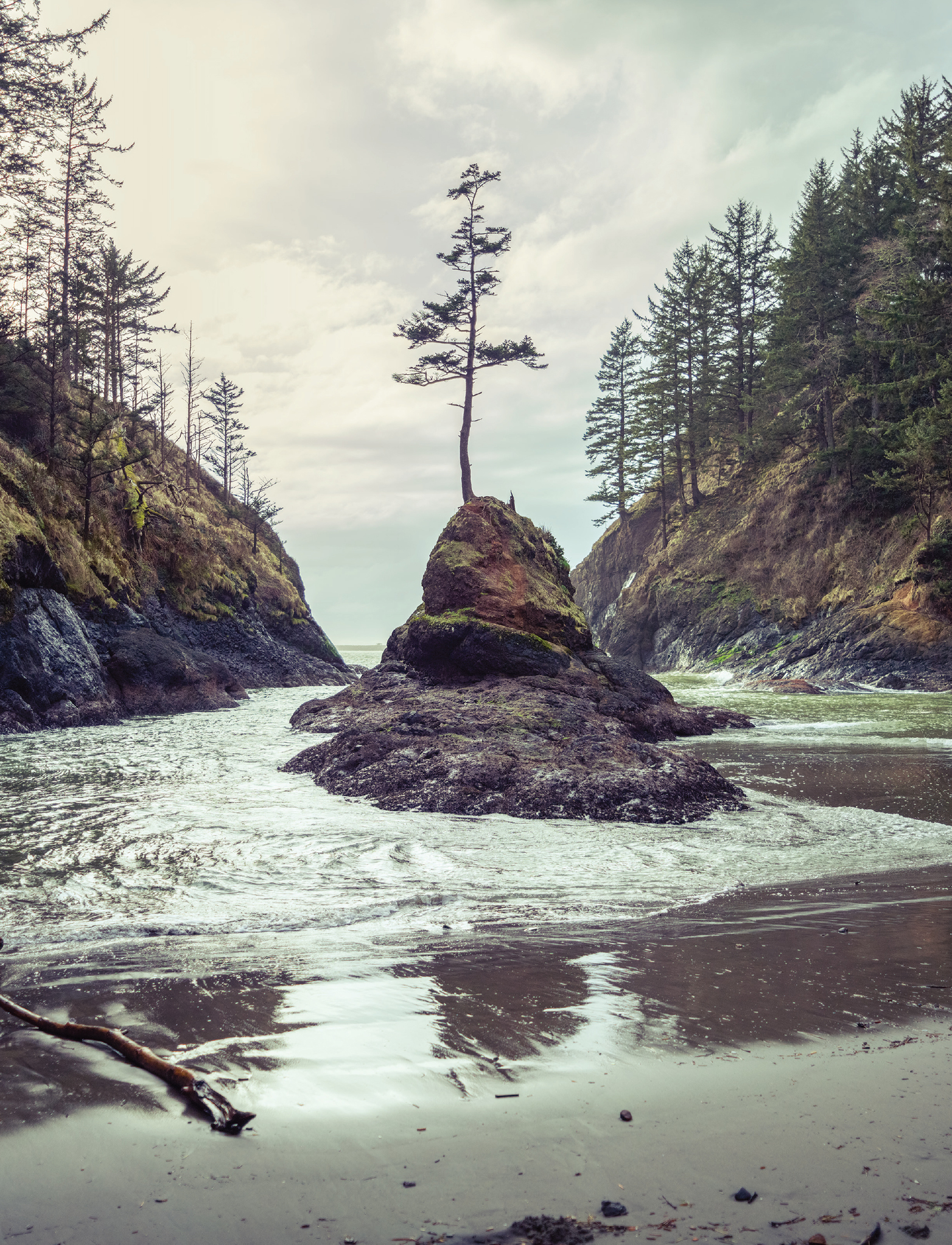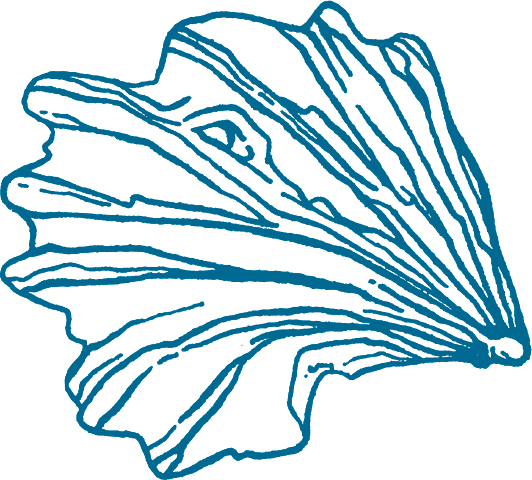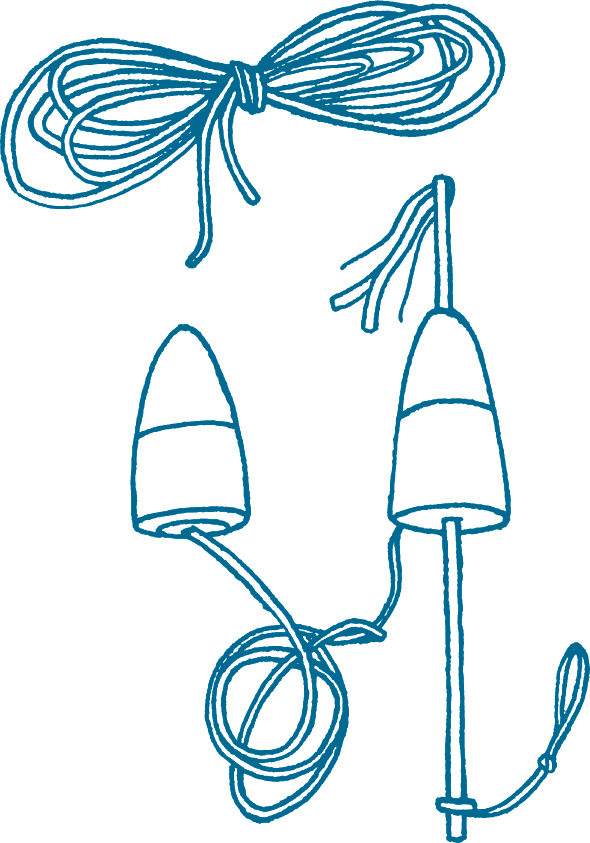Contents
Copyright 2018 by Nancy Blakey
All rights reserved. No portion of this book may be reproduced or utilized in any form, or by any electronic, mechanical, or other means, without the prior written permission of the publisher.
Published by Sasquatch Books
Editor: Hannah Elnan | Production editor: Bridget Sweet
Copyeditor: Kirsten Colton | Design: Anna Goldstein
Photographs: Nick Hall | Illustrations: Teresa Grasseschi
ISBN9781632171436
Ebook ISBN9781632171443
Sasquatch Books | 1904 Third Avenue, Suite 710 | Seattle, WA 98101 (206) 467-4300 | SasquatchBooks.com
v5.2
a
In memory of my father who moved his protesting
family to the Pacific Northwest

Many years ago at a retreat I met a woman from the East Coast. When I told her where I was from, her eyes widened.
Bainbridge Island? The back door of the Olympic Mountains? I went hiking in the Olympics last year on vacation and I still dream of that trip. You must hike and paddle all the time.
I was taken aback. The truth was, the extent of my regular outdoor time was walking the dog around the neighborhood. I mumbled something and we parted, but she had planted a seed.
I came home and saw the mountains across Puget Sound, the islands and beaches beckoning through her eyes, and asked myself, Why didnt I hike more? Why didnt I plan a Sunday afternoon at the beach or fish for those beautiful salmon treading water outside my back door? I had no excuse; I have always loved the outdoors. Somehow it had slid away with the kids and work and the never-ending list of things to do. But suddenly I wanted to own and honor the place the woman from the East Coast dreamed about; I wanted to know it intimately. I joined REI and bought two small kayaks and a backpack. I began to plan local outdoor excursions instead of assuming the magical day would arrive when I had the time and everything lined up to go. I didnt wait for the weather and bought good rain gear and a Discover Pass for Washington State Parks. Over the years I was struck by the elation I felt exploring, even through storms or under a lid of gray skies. I found that science backed up that lift.
Imagine a therapy that had no known side effects, was readily available, and could improve your cognitive functioning at zero cost.
This is the striking opening sentence of a University of Michigan study that found that time spent outdoors made people sharper and more creative thinkers. Other studies related to time spent outdoors had similar findings:
Trouble sleeping? Go outside.
Stressed? Go outside.
Need more energy? Go outside.
Want to elevate your mood? Go outside.
Research is proving we need the great outdoors for more than fresh air. We need it to become happier, healthier human beings, and you have in your hands a book of ideas to make that happen. We are in Pacific Northwest paradise, where the waters teem with seafood the rest of the world pays big bucks for, which is yours with a license. There are lighthouses, seaside bike paths, and uninhabited islands to explore. You may get lost or sunburned. You may skin your knees like a kid. You may detour somewhere unexpected, but that may lead you into a bigger life.
In our ever-increasingly indoor lives, you will have to plan to make it happen. Do it. You will not regret it. The best memories are made when we ask, Why not? Look at a map. Pick a trip or activity, a project or recipe. Take advantage of the Pacific Northwests gorgeous coast. It could change everything.
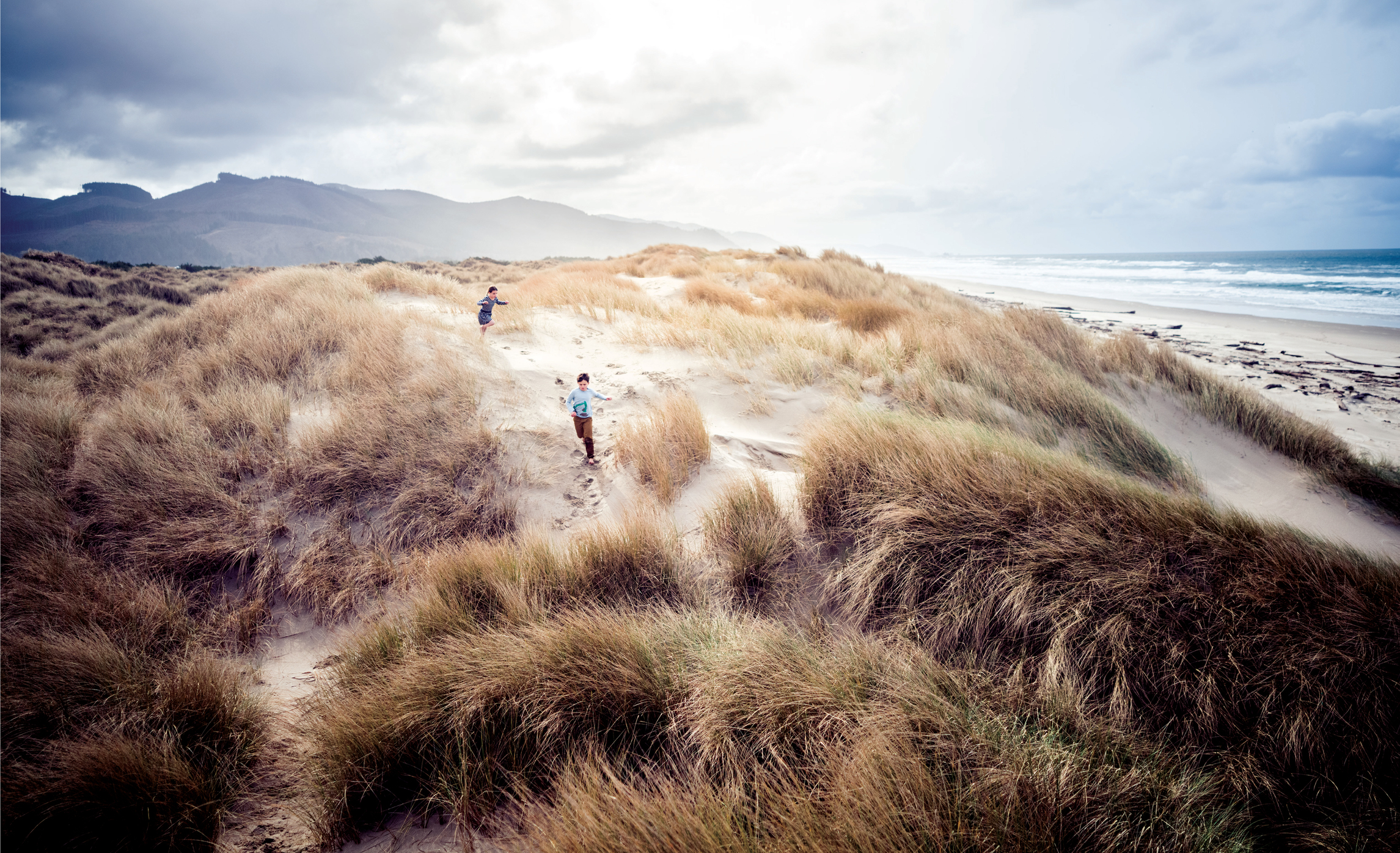
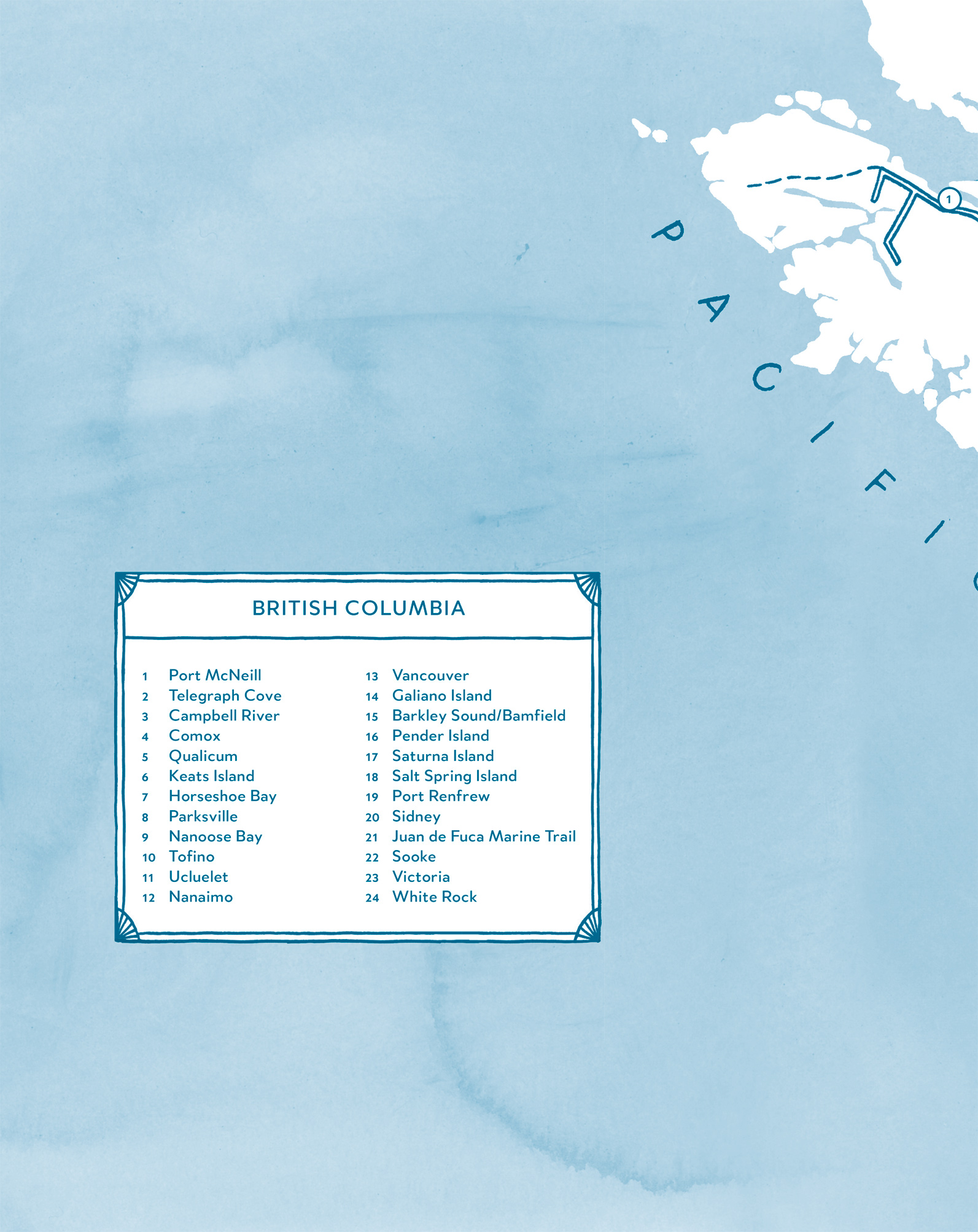
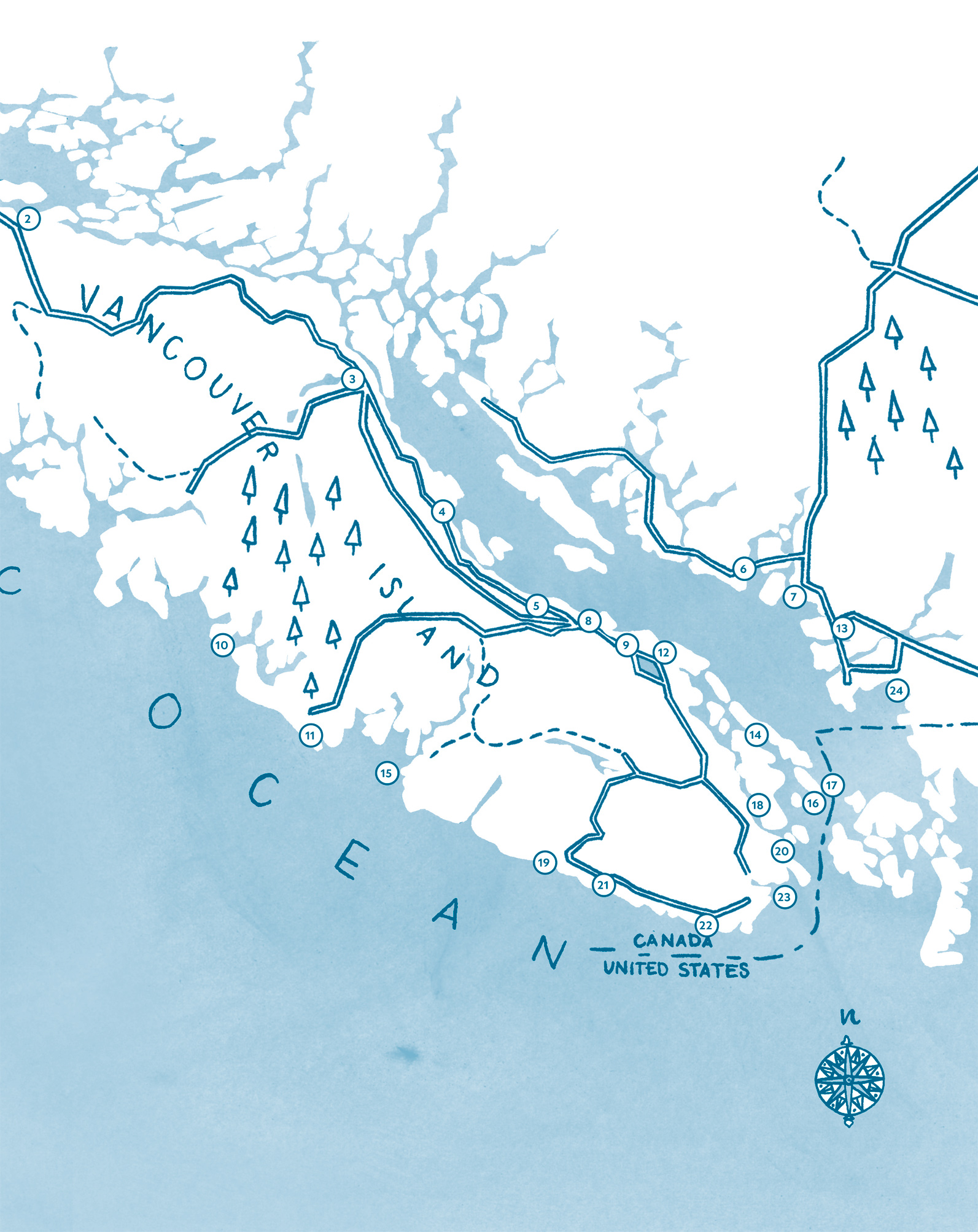
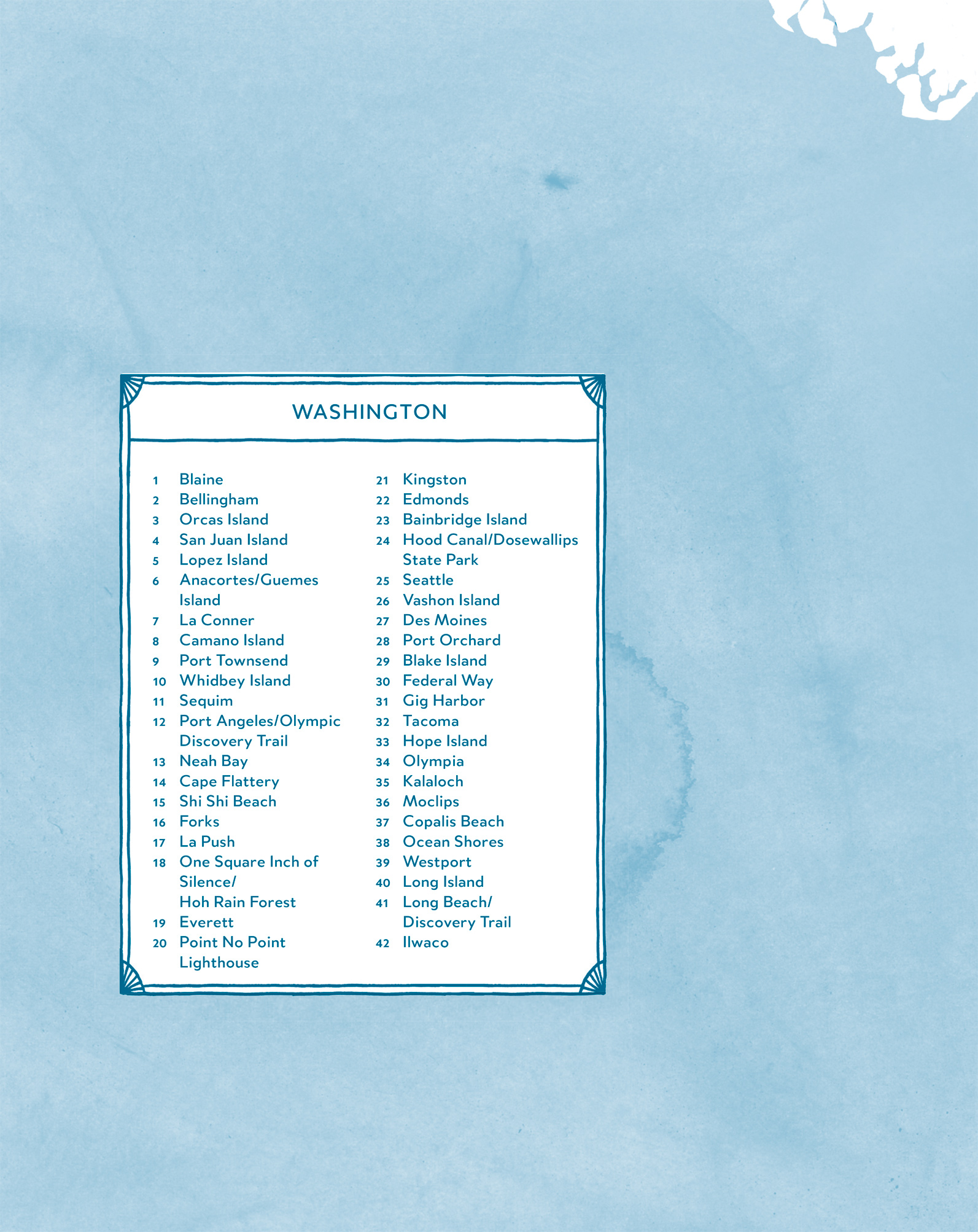
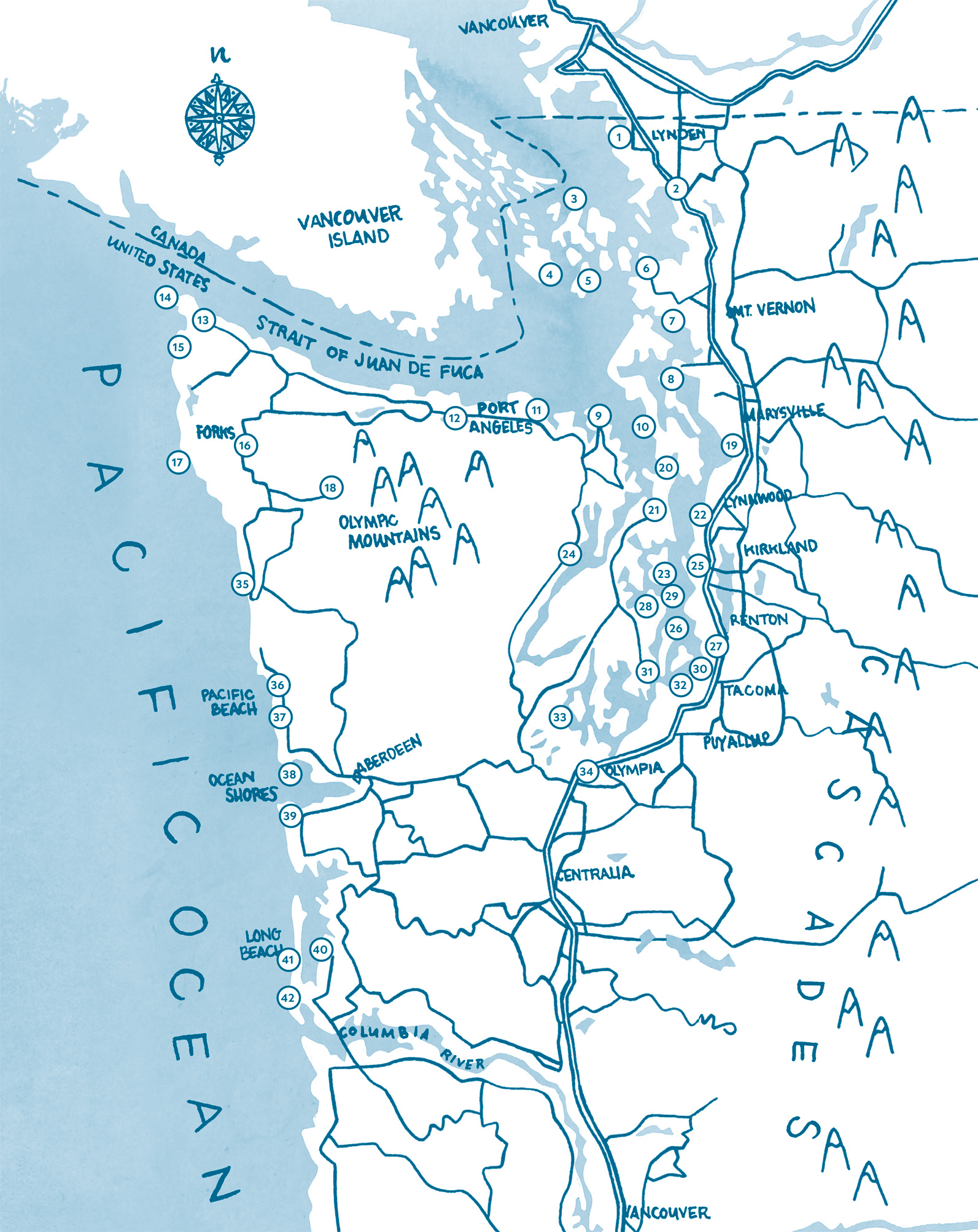
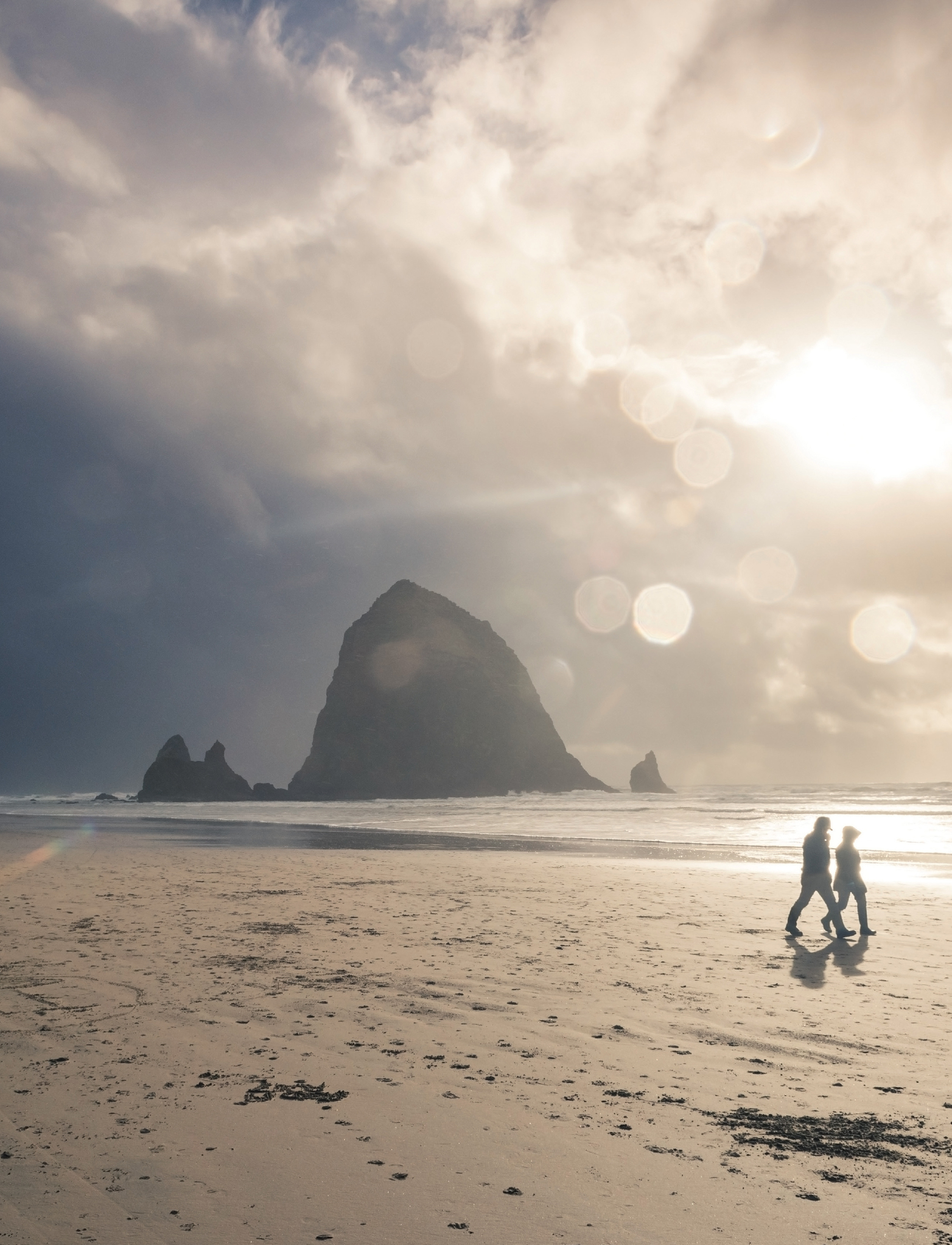
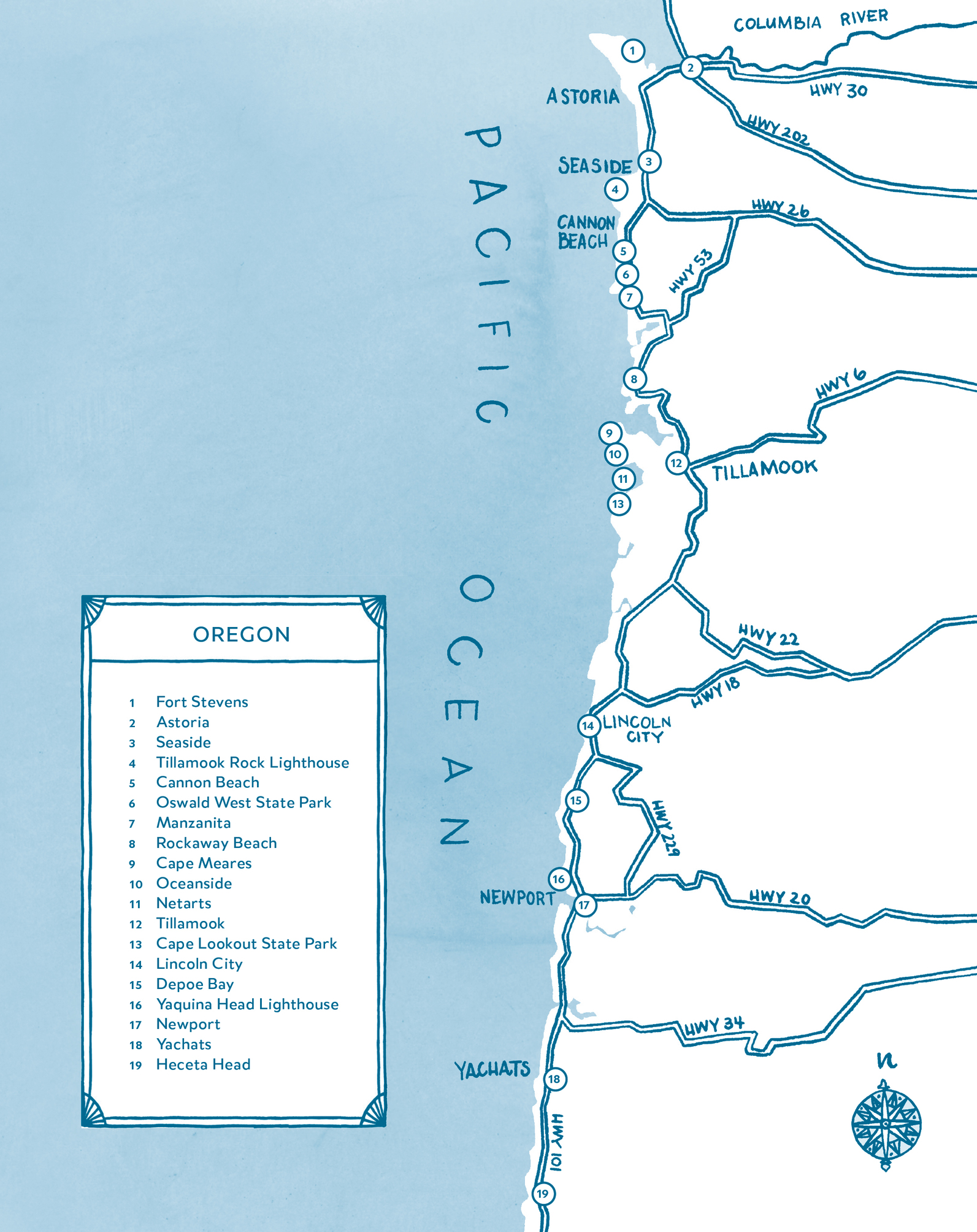
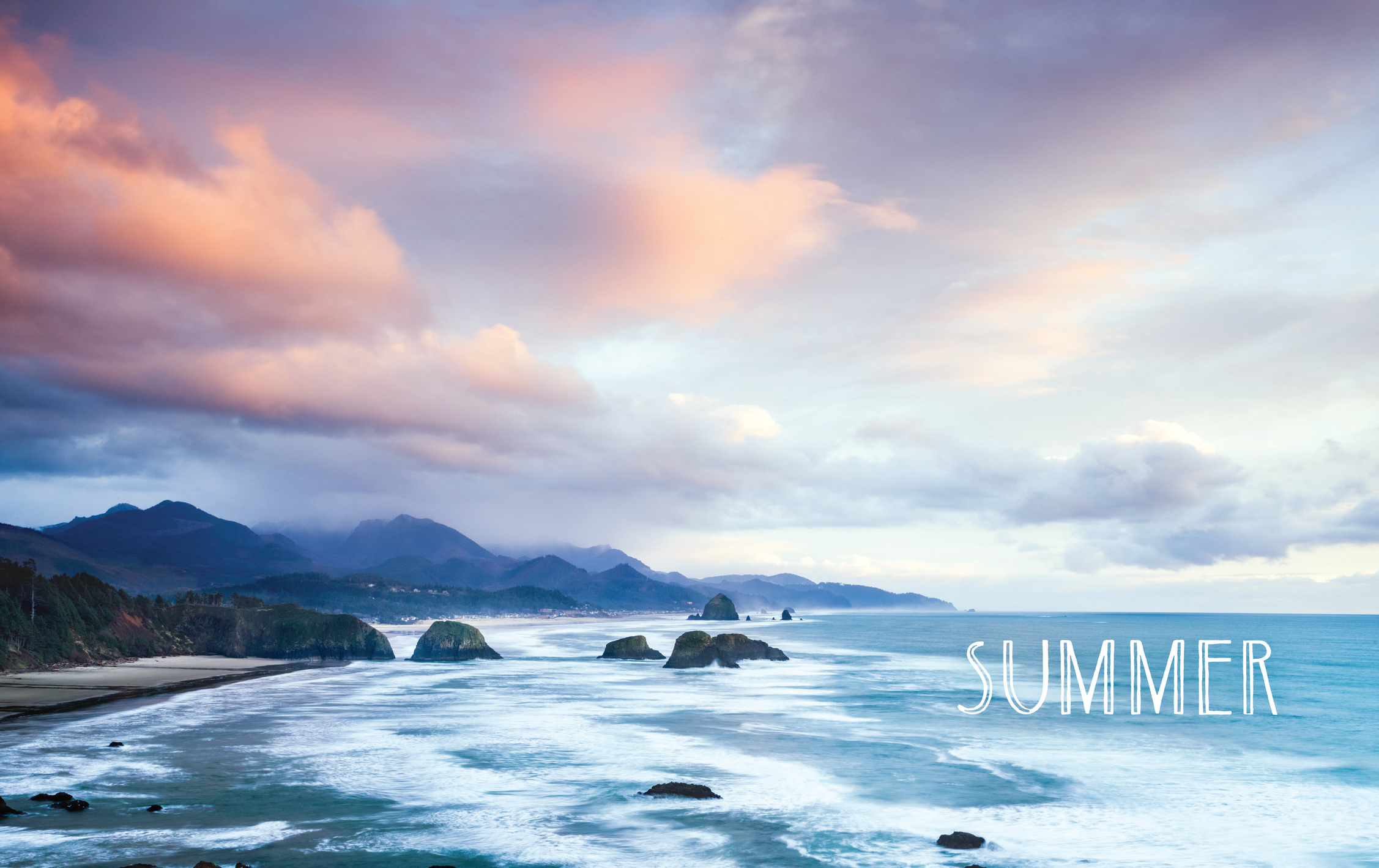
WHALE-WATCHING TRIPS IN THE SALISH SEA
The Salish Sea is one of the worlds largest and most biologically rich inland seas. Transcending borders and man-made territory divisions, it stretches from Desolation Sound north of Vancouver, Canada, through the coastal waterways of Puget Sound, all the way south to the city of Olympia in Washington. It is a single ecosystem where a wide variety of whales feed on the marine sea life, and when we think of whale watching in the Pacific Northwest, we usually think of the striking orca, or killer whale.
Resident orcas of the Salish Sea feed on salmon. In winter when the salmon numbers decrease, the pods head out to the open North Pacific Ocean to hunt. As the salmon return to the Salish Sea to spawn from April through early October, the orcas follow, giving us greater opportunities for sightings. These resident orca pods are not to be confused with transient orcas, which feed on sea mammals, not fish. Transients are sometimes called the wolves of the sea for their highly organized and fierce hunting techniques. Sightings of both resident and transient orcas are concentrated from the Strait of Juan de Fuca to the San Juan and Gulf Islands, with appearances of minke, gray, and humpback whales also possible during the summer.
The Whale Trail (TheWhaleTrail.org) organization highlights a series of sites from Vancouver Island to the Oregon coast where you can view whales from shore. You could get lucky in August and encounter a pod while aboard a ferry or from the shore, but to increase your chances, take a whale-watching excursion and let the experts guide you.



